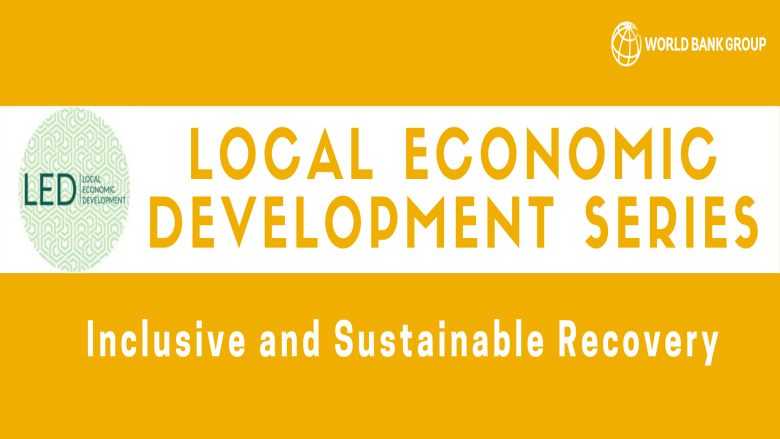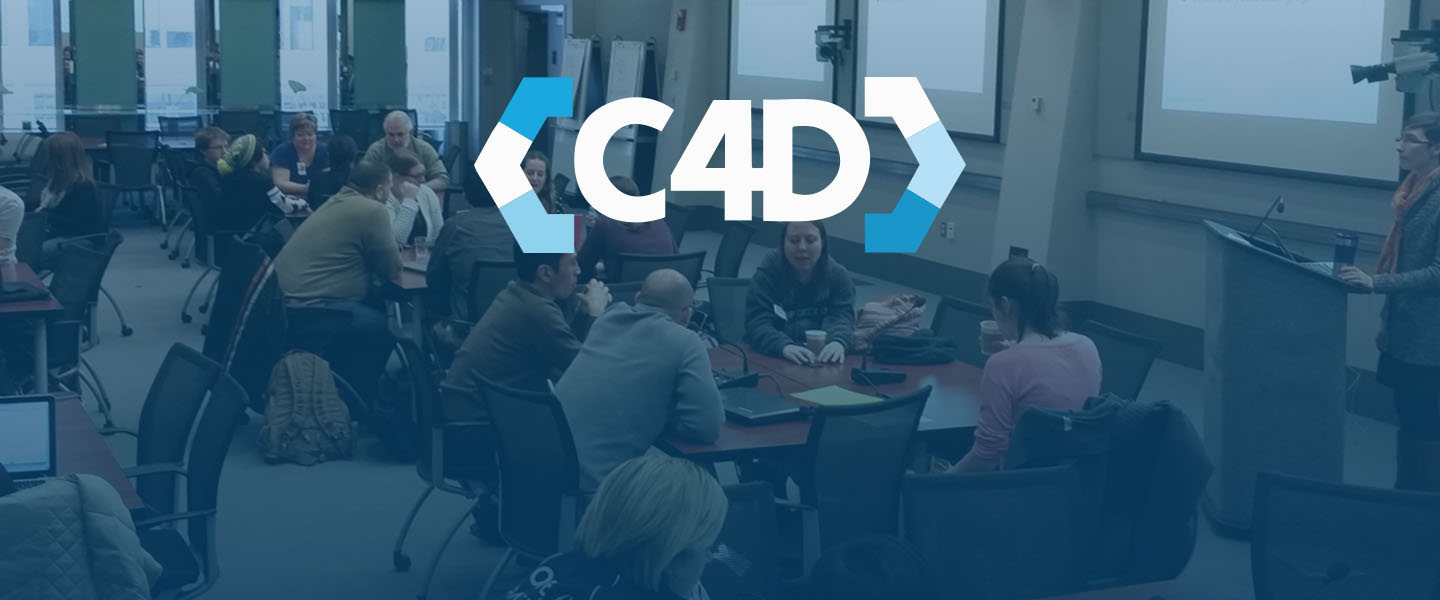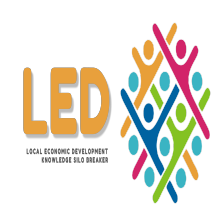| 9:00am-10:00am | Savings Groups are one of the most widespread community development initiatives worldwide. In Africa, there are about 20 million active members in Savings Groups, supported by hundreds of local and international development organizations; and a recent study identified 74 public policies and programs related to Savings Groups, across 20 countries. These groups mobilize financial resources and social capital in marginalized communities; and experience demonstrates they are at the frontlines of the local response to crisis, including the COVID pandemic. And yet, Savings Groups remain a largely underutilized platform for local economic development. Join us for a discussion with the World Bank, the Bill & Melinda Gates Foundation, CARE, Hand in Hand International, the International Rescue Committee and World Vision on leveraging Savings Groups as a platform for local economic development in Africa. Moderator:
Sybil Chidiac, Senior Program Officer, Gender Equality, The Bill & Melinda Gates Foundation
Speakers: Helene Monika Carlsson Rex
Practice Manager, Social Sustainability and Inclusion Global Practice, The World Bank Japheth Muli
Chief Operations Officer, Eastern Africa, Hand in Hand International Angeline Munzara
Senior Advisor, External Engagement & Savings Groups, World Vision David Panetta
Program Director, Savings Groups, The SEEP Network Aisha Rahamatali
Senior Advisor, Women Economic Justice and Rights Action Coalition, CARE International Shobha Shetty
Practice Manager, Food & Agriculture Global Practice, The World Bank Brian Ssebunya (Ph.D)
Senior Technical Advisor, Enterprise Development and Employment, International Rescue Committee Speakers Bio Japheth Muli is s development professional with 14 years of program management experience in microfinance, livelihoods, agriculture, natural resource management, disaster risk reduction, and resilience. Angeline Munzara is the Livelihoods Senior External Engagement Advisor and Savings for Transformation Project Model Lead for World Vision International. Under her leadership, World Vision has supported 54,400 Savings for Transformation (S4T) groups in 34 countries with 1.3 million members (80 percent of whom are women). Angeline holds a Bachelor of Laws Honors (LLBS) and a Masters in International Relations and has over 15 years of development experience working with non-governmental organisations at the national, regional (SADC) and international levels. She is the current Global Chair for the UN’s Food and Agriculture Organization’s (FAO) International Treaty on Plant Genetic Resources for Food and Agriculture Compliance Committee (2019-2021). She recently published a book: "Faith that Breaks Storms': http://angiechawira.co.za/ David Panetta leads the SEEP Network’s practice area in Savings Groups, and a portfolio of learning initiatives to improve standards of practice, mobilize knowledge and strengthen partnerships in the sector. Previously, David led the development of Savings Group programs in 19 countries, reaching approximately one million members – working with the Aga Khan Foundation, DFID, Plan International, Mercy Corps, VSL Associates, World Vision and over one hundred local NGOs. He has a Master’s in Economics from McGill University and is fluent in English, French and Spanish. Aisha Rahamatali is as Senior Advisor, Women Economic Justice and Rights Action Coalition, Aisha currently supports CARE’s participation in the Generation Equality Forum Action Coalition on Economic Justice and Rights. Before that, she acted as CARE Regional Advocacy Coordinator in West Africa, supporting the implementation of Women on the Move, an initiative that aims to scale up Savings Groups in West Africa trough partnership and advocacy with governments. In this role she engaged closely with governments, regional institutions, and women rights organisations to advance the adoption and implementation of Savings Groups by government institutions through financial inclusion, gender and social protection policies. She is the co-author of the recent state of practice report on Savings Groups and the Role of Government in Sub-Saharan Africa and served as co-facilitator of the SEEP Network’s Peer Learning Group on The Role of Savings Groups in Supporting Graduation from Social Safety Nets. Prior to joining CARE, Aisha worked on child rights and women rights advocacy with several NGOs (Defence for Children International, International Federation for Human Rights and the International Catholic Child Bureau). She also advocated for the promotion and protection of women rights as part of the team of the UN Special Rapporteur on Violence against Women. Shobha Shetty is a Practice Manager, Shobha covers Eastern and Southern Africa and oversees a portfolio of agriculture and rural development projects and analytic work of over US$2 billion. From 2012-2018, she served in a similar position in the South Asia region based in the World Bank office in New Delhi. Her current work and interests span agribusiness development, women’s economic empowerment, disruptive Technology, nutrition-sensitive agriculture, urban food systems, rural youth employment, and climate resilience. In 2015 she was a Visiting Fellow at the Tata-Cornell Agriculture and Nutrition Initiative (TCi) at Cornell University, New York. She has previously worked in the Philippines, Indonesia, Papua New Guinea, Timor-Leste, Mozambique, Zimbabwe, Nigeria, Tunisia, Syria, Saudi Arabia on a wide range of issues of agriculture and rural development. Shobha has a Bachelor’s degree in Electronics and Communication Engineering from Anna University, India. She earned her Masters and Ph.D. degrees in Agricultural Economics from Cornell University, USA. Brian Ssebunya (Ph.D) based at the IRC Hub in Nairobi, Brian has over 15 years’ experiences with market systems and private sector development in emergency, recovery and development contexts in Africa and the Middle East. Brian supports IRC’s urban livelihoods projects in East Africa, focused on skills development, entrepreneurship and financial inclusion of urban refugees, as well as new delivery models for IRC’s urban refugee livelihoods programming globally. Brian holds a PhD in Social and Economic Sciences from the University of Natural Resources and Life Sciences (BOKU), in Austria. |



 Blanca Moreno-Dodson, Manager, Center for Mediterranean Integration. Blanca is the Manager of the CMI, a partnership between the World Bank and several national, regional, and local authorities from around the Mediterranean, as well as international financial institutions and civil society. She has over twenty-eight years of experience as a World Bank development economist, including several positions as Lead Economist, mainly for the Global Tax Team, the West Africa Region, the Investment Climate Department, and the Office of the Vice-President for Poverty Reduction and Economic Management. As a Senior Economist, she previously worked at the World Bank Institute, the West Africa Region, and the Corporate Strategy Group of the World Bank. Her regional experience includes the Middle East and North Africa, Latin America and the Caribbean, Sub-Saharan Africa, and East Asia (China, India, and Indonesia). She started her career as a Robert Shuman scholar at the European Parliament and as junior economist at the European Commission, before joining the World Bank Group. Blanca authored and co-authored five books throughout her career including the latest “Enhancing Mediterranean Integration” (CMI, 2020). She has also been published in several internationally renowned economic journals, such as the Bulletin of Economic Research, Hacienda Pública Española, the USA National Tax Association Journal, and Banca d'Italia Annual Volumes.
Blanca Moreno-Dodson, Manager, Center for Mediterranean Integration. Blanca is the Manager of the CMI, a partnership between the World Bank and several national, regional, and local authorities from around the Mediterranean, as well as international financial institutions and civil society. She has over twenty-eight years of experience as a World Bank development economist, including several positions as Lead Economist, mainly for the Global Tax Team, the West Africa Region, the Investment Climate Department, and the Office of the Vice-President for Poverty Reduction and Economic Management. As a Senior Economist, she previously worked at the World Bank Institute, the West Africa Region, and the Corporate Strategy Group of the World Bank. Her regional experience includes the Middle East and North Africa, Latin America and the Caribbean, Sub-Saharan Africa, and East Asia (China, India, and Indonesia). She started her career as a Robert Shuman scholar at the European Parliament and as junior economist at the European Commission, before joining the World Bank Group. Blanca authored and co-authored five books throughout her career including the latest “Enhancing Mediterranean Integration” (CMI, 2020). She has also been published in several internationally renowned economic journals, such as the Bulletin of Economic Research, Hacienda Pública Española, the USA National Tax Association Journal, and Banca d'Italia Annual Volumes. Sara Boughedir, Consultant, Center for Mediterranean Integration. Sara works for the CMI and the World Bank as a consultant, specialized in urban development, local governance, and resilience issues in North Africa, the Middle East, and Western Africa. As part of the Refugees and Host Communities Program team, she supports since 2016 the management and development of the Host Municipalities Learning Network through peer-to-peer learning and training activities. Since 2012 she has been organizing dialogue and consensus building activities between governments (national and local) and donor organizations with CMI and took part in World Bank teams ‘efforts to deliver public policy advisory services for Programs in Morocco, Tunisia and Senegal related to disaster risk and climate change adaptation, and local governance reforms. Her experience also includes preparation and moderation of participatory workshops for the design of public policy programs. Before, she worked as a junior urbanist in private urban planning firms. Sara holds a Master's in Urban Planning from the Paris Institute of Political Sciences (Sciences-po Paris) and a Masters in Sociology from the Ecole Normale Superieure Paris-Saclay.
Sara Boughedir, Consultant, Center for Mediterranean Integration. Sara works for the CMI and the World Bank as a consultant, specialized in urban development, local governance, and resilience issues in North Africa, the Middle East, and Western Africa. As part of the Refugees and Host Communities Program team, she supports since 2016 the management and development of the Host Municipalities Learning Network through peer-to-peer learning and training activities. Since 2012 she has been organizing dialogue and consensus building activities between governments (national and local) and donor organizations with CMI and took part in World Bank teams ‘efforts to deliver public policy advisory services for Programs in Morocco, Tunisia and Senegal related to disaster risk and climate change adaptation, and local governance reforms. Her experience also includes preparation and moderation of participatory workshops for the design of public policy programs. Before, she worked as a junior urbanist in private urban planning firms. Sara holds a Master's in Urban Planning from the Paris Institute of Political Sciences (Sciences-po Paris) and a Masters in Sociology from the Ecole Normale Superieure Paris-Saclay. Giulia Marchesini, Senior Partnership Specialist, Center for Mediterranean Integration. Giulia joined the CMI in March 2014 as Senior Partnership Specialist. She maintains and explores liaisons between the Center’s founding members and partners while managing new partnerships and supporting fundraising. In addition, Giulia leads the human capital agenda including migration and mobility components, as well as the work with the Host Municipalities Learning Network. She also led the implementation of the Mediterranean Forum on Energy and Climate Change, in partnership with the European Commission. Before joining the CMI, Giulia worked for the French Development Agency (AFD) in the Partnerships and Mediterranean departments. From 2012 to 2013 she was advisor to the French Ministry for Development where she was notably in charge of dialogue with the MENA region. Her experience in the MENA region also includes coordinating MENA economic and commercial issues for the French Ministry of Economy and Finances (2007-2009). Giulia holds master's degrees in Public Administration from Ecole Nationale d'Administration in France, and in International Affairs and Diplomacy from the University of Bologna in Italy.
Giulia Marchesini, Senior Partnership Specialist, Center for Mediterranean Integration. Giulia joined the CMI in March 2014 as Senior Partnership Specialist. She maintains and explores liaisons between the Center’s founding members and partners while managing new partnerships and supporting fundraising. In addition, Giulia leads the human capital agenda including migration and mobility components, as well as the work with the Host Municipalities Learning Network. She also led the implementation of the Mediterranean Forum on Energy and Climate Change, in partnership with the European Commission. Before joining the CMI, Giulia worked for the French Development Agency (AFD) in the Partnerships and Mediterranean departments. From 2012 to 2013 she was advisor to the French Ministry for Development where she was notably in charge of dialogue with the MENA region. Her experience in the MENA region also includes coordinating MENA economic and commercial issues for the French Ministry of Economy and Finances (2007-2009). Giulia holds master's degrees in Public Administration from Ecole Nationale d'Administration in France, and in International Affairs and Diplomacy from the University of Bologna in Italy.  Fuat Ozharat, Gaziantep Metropolitan Municipality, Turkey. Fuat has been working for the Foreign Affairs Department at Gaziantep Metropolitan Municipality for three years and is responsible for the coordination with UCLG and other international networks. Fuat is also a core member of the Host Municipalities Learning Network and a country coordinator and focal point for the Network in Turkey. After 30 years of experience in the private sector, Fuat decided to start working in his hometown to contribute to solve issues risen with the high influx of refugees and to have a positive impact on people’s lives.
Fuat Ozharat, Gaziantep Metropolitan Municipality, Turkey. Fuat has been working for the Foreign Affairs Department at Gaziantep Metropolitan Municipality for three years and is responsible for the coordination with UCLG and other international networks. Fuat is also a core member of the Host Municipalities Learning Network and a country coordinator and focal point for the Network in Turkey. After 30 years of experience in the private sector, Fuat decided to start working in his hometown to contribute to solve issues risen with the high influx of refugees and to have a positive impact on people’s lives.  Nadine Burbar, Head of Local Economic Development and Deputy Chief Resilience Officer, Ramallah Municipality, Palestine. Nadine acts as Deputy Chief Resilience Officer at Ramallah City since 2017, she supports the city in the development and implementation of urban resilience and sustainable development plans and Heads the Local Economic Development Unit at Ramallah Municipality. She completed a master’s degree in Competitiveness and Innovation from Deusto University-Spain, which allowed her to undertake a consulting role in digitization and business development. Nadine’s interests extend from urban resilience and good governance to supporting the innovation ecosystem. Nadine is a graduate of Founder Institute Silicon Valley and takes an active role in entrepreneurship platforms.
Nadine Burbar, Head of Local Economic Development and Deputy Chief Resilience Officer, Ramallah Municipality, Palestine. Nadine acts as Deputy Chief Resilience Officer at Ramallah City since 2017, she supports the city in the development and implementation of urban resilience and sustainable development plans and Heads the Local Economic Development Unit at Ramallah Municipality. She completed a master’s degree in Competitiveness and Innovation from Deusto University-Spain, which allowed her to undertake a consulting role in digitization and business development. Nadine’s interests extend from urban resilience and good governance to supporting the innovation ecosystem. Nadine is a graduate of Founder Institute Silicon Valley and takes an active role in entrepreneurship platforms.  Reham Jammal, Director of Planning Department & Director of International Projects and Programs Unit, Greater Irbid Municipality, Jordan. Reham is an engineer and urban planner. After several roles as an engineer in the private and public sector, she became Director of Planning Department & International Programs and Projects Unit for the Greater Irbid Municipality in 2015, where she is now responsible for solid waste management, works on the city’s master plan and contributes to Irbid’s observatory, including updating municipal data and undertaking population studies. She also works on grants and project proposals, and on cultural heritage and rehabilitation of historical sites. Reham is also a permanent member of the community prevention network for protection from violence and extremism in Jordan.
Reham Jammal, Director of Planning Department & Director of International Projects and Programs Unit, Greater Irbid Municipality, Jordan. Reham is an engineer and urban planner. After several roles as an engineer in the private and public sector, she became Director of Planning Department & International Programs and Projects Unit for the Greater Irbid Municipality in 2015, where she is now responsible for solid waste management, works on the city’s master plan and contributes to Irbid’s observatory, including updating municipal data and undertaking population studies. She also works on grants and project proposals, and on cultural heritage and rehabilitation of historical sites. Reham is also a permanent member of the community prevention network for protection from violence and extremism in Jordan.